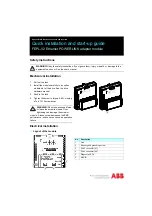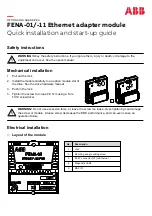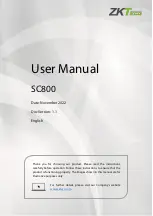
CHAPTER 3 CPU ARCHITECTURE
Preliminary User’s Manual U17260EJ3V1UD
77
3.3 Instruction Address Addressing
An instruction address is determined by contents of the program counter (PC) and memory bank select register
(BANK), and is normally incremented (+1 for each byte) automatically according to the number of bytes of an
instruction to be fetched each time another instruction is executed. When a branch instruction is executed, the branch
destination information is set to PC and branched by the following addressing (for details of instructions, refer to the
78K/0 Series Instructions User’s Manual (U12326E)
).
3.3.1 Relative addressing
[Function]
The value obtained by adding 8-bit immediate data (displacement value: jdisp8) of an instruction code to the
start address of the following instruction is transferred to the program counter (PC) and branched. The
displacement value is treated as signed two’s complement data (
−
128 to +127) and bit 7 becomes a sign bit.
In other words, relative addressing consists of relative branching from the start address of the following
instruction to the
−
128 to +127 range.
This function is carried out when the BR $addr16 instruction or a conditional branch instruction is executed.
[Illustration]
15
0
PC
+
15
0
8
7
6
S
15
0
PC
α
jdisp8
When S = 0, all bits of are 0.
When S = 1, all bits of are 1.
PC indicates the start address
of the instruction after the BR instruction.
...
α
α
















































